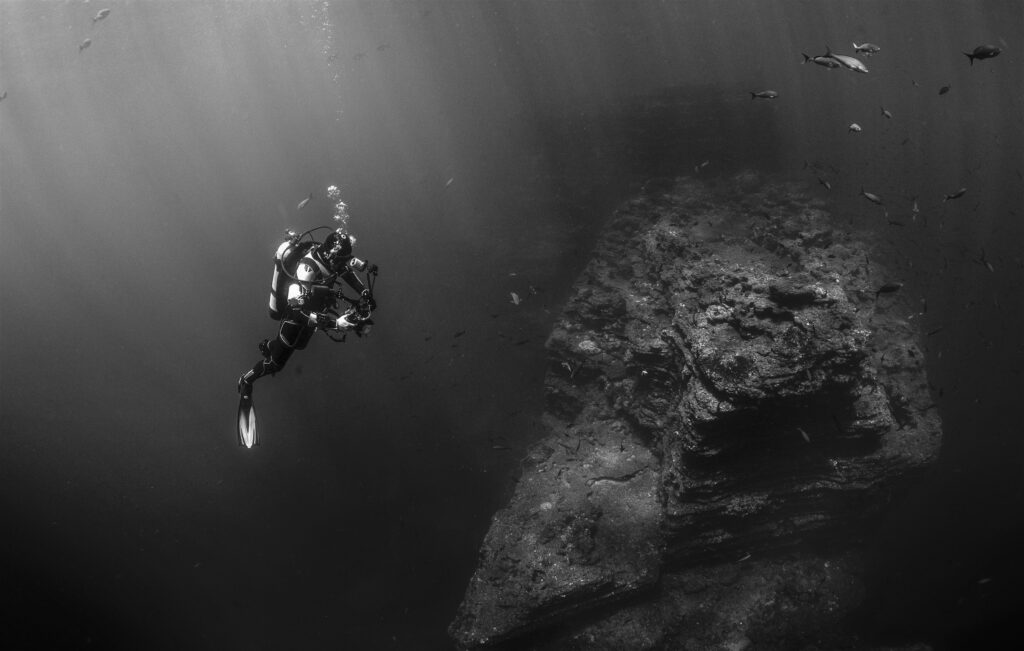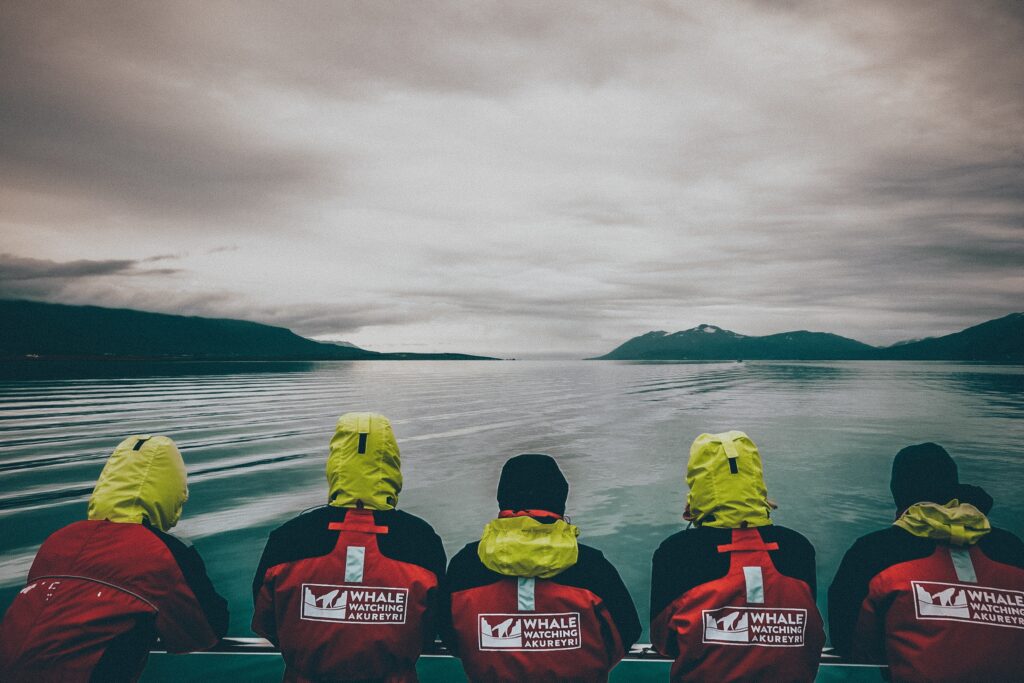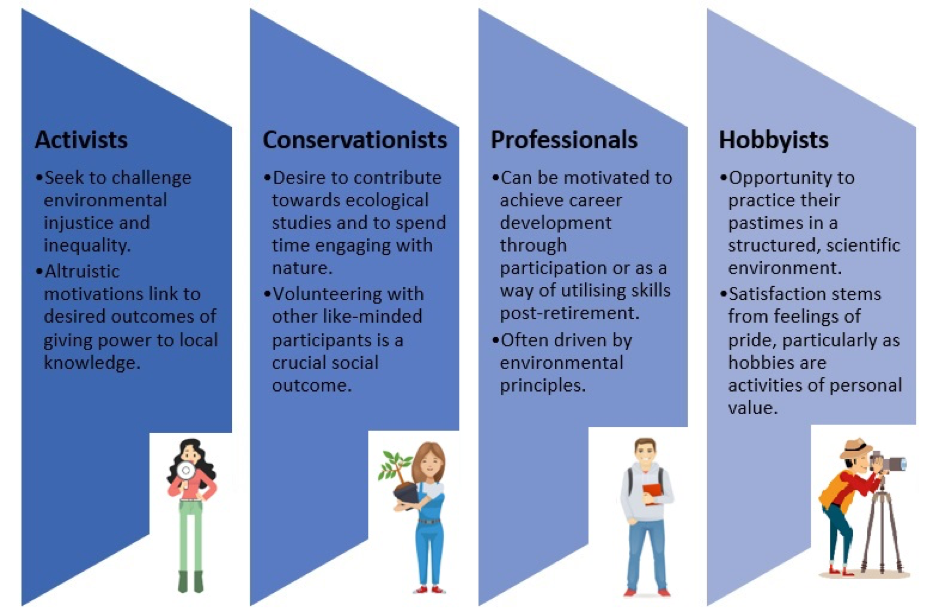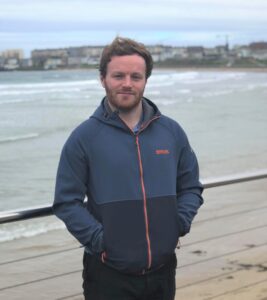
Marine community science projects can involve the monitoring of underwater ecosystems (Unsplash, 2014)
The need for large-scale collections of data on environmental changes in coastal and marine ecosystems has become imperative in recent years. With the scope and consistency of government monitoring programmes hindered by financial and resource limitations, there has been a rapid increase in the use of participatory research initiatives as an alternative solution. One such example is community science, whereby local community members work with professional scientists to collaboratively generate knowledge about the marine environment. Such knowledge can help to inform policy and decision-making processes, as well as supporting the engagement of local communities with marine governance systems.
To establish sustainable levels of participant retainment and recruitment in community science projects, organisers must speak to the needs and requirements of volunteers. Evaluating their participation experiences is, therefore, crucial, with coordinators seeking to assess volunteers’ motivations for engagement and the complex outcomes that they achieve through their participation. Many assessments have, however, ineffectively examined the relationship between volunteers’ motivations and how they relate to the personal outcomes that they wish to pursue. Our study responds to this limitation by assessing a wider scope of community science participation, investigating volunteers’ expectations, concerns and perceptions of engagement.
Evaluating participation in marine community science
We conducted a survey (n = 308) with the participants of 8 marine community science projects in Ireland and the UK, including Seasearch diving programmes and the Coastwatch survey initiative. We critically assessed a range of participation-related aspects, using factor analysis to simplify our collected data and to both uncover and examine patterns of engagement amongst respondents. The method aligned with our research objective of examining the interrelated bundle of causal variables that volunteer motivations and outcomes form, and how these determine the level, type and effect of participation. Importantly, it also helped to reveal the multiple, complex and often contradictory motivations, ethics, experiences and personal benefits of joining a particular set of marine community science initiatives.

Community science includes both individual and collective forms of participation (Unsplash, 2017)
Factor analysis suggested that our respondents are best represented by four factors. We labelled these as: (i) Activists; (ii) Conservationists; (iii) Professionals; and (iv) Hobbyists. These profiles highlight a diverse range of participation pathways, each associated with different perceptions on the role of marine community science. In the case of Conservationists and Hobbyists, we found that they are motivated to expand personal knowledge and skillsets, contribute to scientific knowledge and attain recognition for conservation actions. Conversely, Professionals are motivated to participate as a means of upholding their environmental principles and developing career advancement. Altruistic desires to instigate wider change and to become more politically engaged are revealed as being central to the participation of Activists.
Revealing a wider scope of volunteer engagement
Whilst our findings on the motivational drivers of surveyed volunteers largely reflected seminal studies on volunteerism, our assessment of how these are linked to specific perceptions and outcomes of participation reveal valuable insight. We demonstrate how the creation of volunteer profiles can shed light on the factors that support or inhibit the realisation of participation intentions. We recommend that this style of evaluation should be followed by marine community science coordinators more broadly, so that their projects can explicitly highlight the significance of an individual’s contribution.
By focusing on the complex composition of participant cohorts, the analysis also highlights the nature of the ‘science’ that each group is engaged with as active producers of knowledge. For Professionals and Hobbyists the depth of research is not the primary issue, yet for Activists and Conservationists it clearly is. These two groups move beyond ‘science’ as a technical project to value its epistemological basis and how it is ultimately used. For Conservationists it is primarily about ‘outcome knowledge’, with the emphasis on empirical accounts of particular environmental conditions. Activists differ slightly, valuing the capacity of community science to create ‘actionable knowledge’. This is knowledge that connects heterogeneous elements (social, political, environmental) in an attempt to expand existing modes of knowing and to inform future action.

An overview of the extracted volunteer profiles and how they differ (McAteer et al., 2021)
Embedding volunteers at the core of projects
Our conclusions do not suggest that projects should value one type of volunteer over another, but show that projects need to pay attention to the alignment between a potential participant and the aspects of participation that they are most interested in. There is a ‘fine line’ between supporting and taking advantage of volunteers and it is important not to disregard this or risk losing vital contribution. Community science has a strong potential to effectively contribute to marine policy and to advance public participation in governance. This can only be achieved on a sustainable basis, however, if projects speak to the needs of volunteers and facilitate active participation processes.
You can read the full paper here
…………………
Author information
Ben McAteer, Queen’s University Belfast
Ben is a research er from the north coast of Ireland and is currently carrying out a PhD in the School of the Natural and Built Environment at Queen’s University Belfast. His PhD thesis investigates the transformative potential of marine community science, a form of participatory research. Power analysis is used to examine the capacity of community science projects to instigate more engaged forms of public participation in marine governance regimes. Ben has published peer-reviewed articles in the field of marine governance and conservation, and currently works as a research assistant on the LiftWEC project at Queen’s University Belfast.
er from the north coast of Ireland and is currently carrying out a PhD in the School of the Natural and Built Environment at Queen’s University Belfast. His PhD thesis investigates the transformative potential of marine community science, a form of participatory research. Power analysis is used to examine the capacity of community science projects to instigate more engaged forms of public participation in marine governance regimes. Ben has published peer-reviewed articles in the field of marine governance and conservation, and currently works as a research assistant on the LiftWEC project at Queen’s University Belfast.
